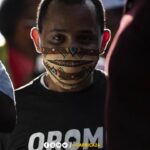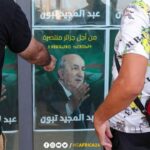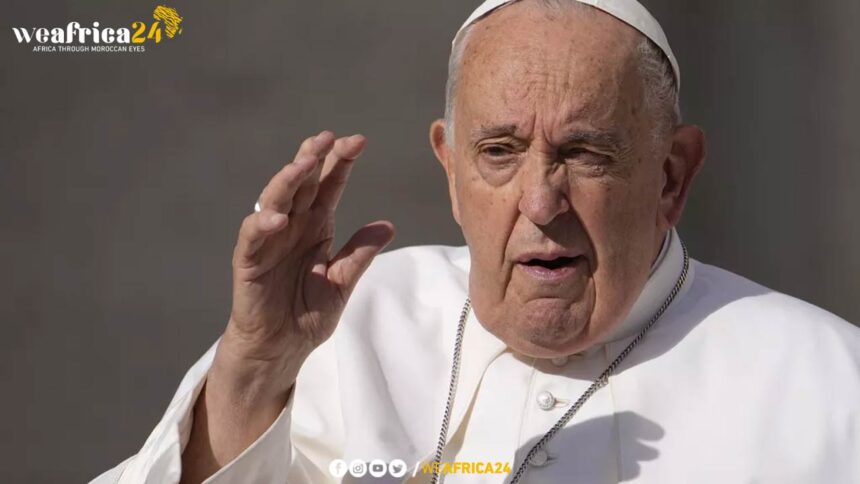Pope Francis issued an apology on Tuesday following the fallout from reports quoting him using a derogatory term about gay men to reaffirm the Catholic Church’s stance on prohibiting gay priests.
The incident highlighted the ongoing tension between the Church’s official teachings on homosexuality and the reality of a significant presence of gay men within the priesthood, as well as the numerous LGBTQ+ Catholics seeking full inclusion in the Church’s sacraments and community life.
Pope Francis Responds to Media Outcry
Vatican spokesman Matteo Bruni acknowledged the uproar sparked by the Pope’s comments, which were made behind closed doors to Italian bishops on May 20. According to Italian media, which cited unnamed bishops, the Pope humorously used the term “faggotness” while reiterating the Vatican’s ban on gay men entering seminaries and being ordained as priests.
Bruni clarified that Pope Francis did not intend to offend or express homophobic views, and he extended an apology to those hurt by the remarks. The Vatican’s statement, however, neither confirmed nor denied the exact wording attributed to the Pope.
Broader Implications for the LGBTQ+ Community
The reaction from advocates for LGBTQ+ Catholics emphasized that the controversy transcends the offensive term used. Natalia Imperatori-Lee, Chair of the Religious Studies Department at Manhattan College, pointed out the more profound issue of the Church’s institutional stance on excluding gay men from the priesthood. She noted that many celibate gay priests serve faithfully within the Church.
“The recurring ‘mistakes’ by Vatican officials, including the Pope, reflect a broader issue of how the LGBTQ+ community is treated,” Imperatori-Lee remarked.
The Vatican’s Position on Gay Priests
The Pope Francis’s prohibition on gay priests was initially outlined in a 2005 document by the Congregation for Catholic Education and reiterated in 2016. The policy states that men who “practice homosexuality, present deep-seated homosexual tendencies, or support the so-called gay culture” cannot be admitted to seminaries or ordained.
This stance has faced criticism for being both homophobic and hypocritical, given the presence of many gay priests within the Church. Psychotherapist Richard Sipe and Rev. Donald Cozzens, both of whom studied the issue extensively, estimated that a significant percentage of the clergy in the United States is homosexually oriented.
The Church’s Teachings and Priestly Celibacy
Catholic priests in the Latin rite are required to remain celibate, while those in Eastern rite churches may marry. The Church teaches that gay individuals should be treated with dignity and respect but views homosexual activity as “intrinsically disordered.”
During his May 20 meeting with Italian bishops, Pope Francis reaffirmed the Vatican’s ban on gay priests and made a controversial joke about the presence of gay men in seminaries. This remark was initially reported by Italian gossip site Dagospia and subsequently picked up by mainstream media.
Pope Francis’ Outreach to LGBTQ+ Catholics
Despite occasional missteps, Pope Francis is known for his outreach to LGBTQ+ Catholics. His famous “Who am I to judge?” comment in 2013 marked a significant moment in his papacy. He has also ministered to transgender Catholics, allowed priests to bless same-sex couples, and called for an end to anti-gay legislation, asserting that “Being homosexual is not a crime.”
However, his statements have sometimes caused offense within the LGBTQ+ community. In a 2023 interview with The Associated Press, he clarified that while he did not consider homosexuality a crime, he viewed homosexual acts as sinful according to Church teaching. More recently, he supported a Vatican document deeming gender-affirming surgery a grave violation of human dignity.
Reactions from LGBTQ+ Advocacy Groups
New Ways Ministry, an advocacy group for LGBTQ+ Catholics, welcomed the Pope’s apology but criticized the ongoing ban on gay priests. Director Francis DeBernardo emphasized the need to reconsider the underlying issues rather than just the offensive language.
Andrea Rubera, a spokesperson for Paths of Hope, an Italian LGBTQ+ Christian association, expressed disappointment over the Pope’s remarks and the Vatican’s failure to outright deny them. Rubera called for a deeper discussion within the Church on LGBTQ+ issues, informed by the experiences of LGBTQ+ individuals themselves.
As the Church navigates these complex issues, the hope remains for greater inclusivity and understanding within its community.







